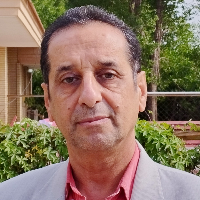Isolation ofanthracene resistant bacteria from musa creek and scrutiny their growth and ability in biosurfactant production
The Poly aromatic hydrocarbons (PAHS) are one of the most important kinds of pollutants that go through the marine ecosystems mains via anthropogenic activities (oil sources such as oil spills). One important practical method for oil pollution elimination is the use of microorganisms in biodegradation. Biosurfactant production by microorganism’s result in increase of biodegradation via increase of their solubility in liquid phase. However, this ability to all microorganism’s. To comparison growth and biosurfactant production ability of bacteria presented in contamination deposits of musa creek, the deposit sample was taken from polluted area. Two bacteria species AD2 and AD6 were purified and isolated. The isolates were identified as Psedomonas stutzeri and Alcaligenes denitrificans with morphological and biochemical tests. To intent of bacterial growth assay optical density were measured in 600 nm by spectrophotometer. Biosurfactant evaluations were performed by Blood agar, Drop collapse and Oil spread methods. Psedomonas stutzeri showed biosurfactant production potentials. According to results, Psedomonas stutzeri has a good growth in the media containing Antheracene as sole source of carbon and energy. also data demonstrated that the growth of biosurfactant producing bacteria(Psedomonas stutzeri) was better than Alcaligenes denitrificans due to increase of Antheracene solubility and enhance at its bioavailability in the media.
-
Microplastic pollution in two zooplankton groups on the southern coast of the Caspian Sea
Y. Azadkar Langroudi*, N. Sakhaei, F. Amini, S. Bagheri, A. Safahieh
Iranian Journal of Fisheries Sciences, Jan 2024 -
Biodegradation of Bisphenol A by Indigenous Bacteria Isolated from the Mousa Creek Sediments (Persian Gulf)
Razieh Nasrolahzadeh *, , Hossein Zolgharnein, Issac Zamani, Kamal Ghanemi
Journal of Marine Science and Technology, -
Assessment of Isolated Bacteria from Persian Gulf Sediments for Biological Removal of Lead and Anthracene
*, Hajar Abyar, Raziyeh Lamochi, Alireaz Safahieh, Negin Salamat, Fatemeh Mojodi, Mostafa Zaredoost
Journal of Biosafety, -
A Study of the Ability of Bacteria Isolated from Persian Gulf Sediments to Biologically Remove Lead and Anthracene
, Razieh Lamoochi *, , Negin Salamat, Hajar Abyar, Fatemeh Mojodi, Mostafa Zaredoost
Journal of Natural Environment,



